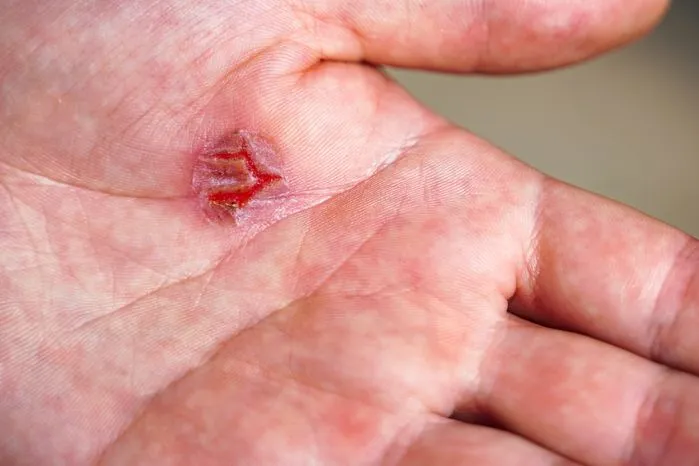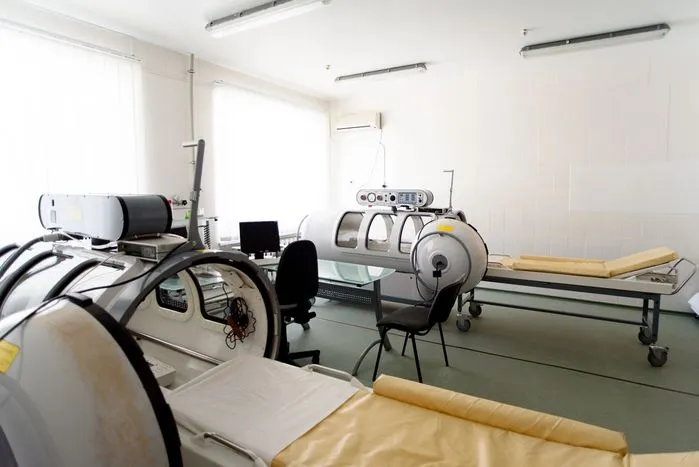Non-Healing Wounds: Causes, ICD-10 Classification & Advanced Treatment Insights
Why do some wounds fail to heal, even with proper care? At TheWoundPros.com, we specialize in diagnosing and treating chronic, non-healing wounds, helping patients regain skin integrity and avoid serious complications. When a cut, sore, or scab persists beyond the normal healing timeframe, it often signals an underlying issue requiring specialized intervention.
💡 Key Insights from The Wound Pros:
✔️ ICD-10 Classification Explained – How medical professionals code and diagnose chronic wounds for proper treatment.
✔️ Why Wounds Don’t Heal – The impact of diabetes, poor circulation, infections, and underlying conditions on wound recovery.
✔️ Advanced Treatment Options – Beyond basic wound care: debridement, bioengineered dressings, and oxygen therapy for enhanced healing.
🔍 When to Seek Professional Wound Care:
If a wound remains open for more than 4 weeks despite treatment.
If there are signs of infection, including swelling, pus, or increasing pain.
For patients with diabetes or vascular conditions, where non-healing wounds can lead to severe complications.
At TheWoundPros.com, we provide expert-backed solutions for chronic wounds, using the latest in advanced wound care technology. Explore this guide to learn how to identify, classify, and treat non-healing wounds effectively.
Key Takeaways
- Precise documentation and communication with your doctor are ideal ways to resolve these issues.
- Chronic often leads to wounds that take too long than usual to heal.
- Evaluating the wound regularly is vital to assessing healing progress.
- There are an array of treatment options for these types of wounds. It varies per patient and their condition.
- There are preventive measures to commit to if you want to resolve these concerns.
Understanding ICD-10 Definition
Its global application involves the classification and recording of various health-related factors, diseases, and symptoms. This system serves important statistical and healthcare management purposes.
Its detailed diagnostic criteria assist medical practitioners in accurately reflecting a patient's health status. Comprising different categories, this coding system represents various groups of diseases or health conditions. Each category is further divided into subcategories for more precise diagnoses.
Identifying Non-Healing Wounds
Such wounds fail to follow the standard healing stages in a synchronized and timely manner, often persisting for over a month without significant improvement.
Critical evaluation of wound characteristics is essential in identifying these persistent wounds.
Health professionals study vital aspects like wound size, depth, color, and discharge.
"Persistent wounds are more than just slow healers—they signal deeper health concerns. Understanding their causes and treatment is the first step toward recovery. With proper care and timely intervention, healing is within reach."
Usual Culprits of Persistent Sores
Chronic inflammation activates a lengthy immune system response which persists from weeks to months up to years thus becoming frequent.
Complications from diabetes significantly contribute to this issue as well. Elevated blood sugar levels harm blood vessels, impeding the delivery of essential oxygen and nutrients to the skin.
Poor circulation, bacterial infection, malnutrition, certain medications, and lifestyle habits are other contributing factors.
Treatment Options Explored
Numerous causes behind non-healing wounds necessitate a range of treatment strategies.
1. Often, debridement is an initial treatment choice, where dead tissue gets removed to facilitate the healing process.
2. Various ointments and dressings in topical treatments protect while maintaining a moist environment, beneficial for healing.
3. High levels of oxygen exposure in hyperbaric oxygen therapy are part of advanced therapies, speeding up the healing process.
4. Severe wound cases might require surgical intervention to excise infected tissue and close the wound.
Professional guidance is necessary for exploring these solutions. Patience, and consistency in wound care, irrespective of the chosen treatment plan, are essential for promoting healing.
Preventative Measures Against Non-Healing Wounds
The prevention of complications follows from proper wound cleaning with correct dressing techniques together with fast medical evaluation after an injury occurs. The prevention of infections depends on both environment cleanliness and periodic application of antiseptic solutions as well as frequent dressing changes.
Your personal lifestyle strategies remain essential for blocking the development of these enduring skin sores.
Persons with enduring medical conditions must properly regulate their condition to stop persistent wounds from occurring.
Regular health check-ups, along with strict adherence to prescribed medications, assist in controlling these conditions, reducing the risk of wounds that fail to heal.
Supporting Facts and Statistics
According to the U.S. Food and Drug Administration (FDA), non-healing wounds pose major medical challenges and drive high healthcare costs. In the United States, 2% of the population suffers from chronic wounds.
The National Institutes of Health (NIH) cited that diabetes drives the high incidence of non-healing wounds. High blood glucose disrupts natural healing, causing diabetic foot ulcers, which remain the top reason for lower limb amputations in diabetic patients.
Meanwhile, the Agency for Healthcare Research and Quality (AHRQ) emphasized that pressure ulcers, known as bedsores, fall into the category of non-healing wounds. Each year, over 2.5 million Americans develop these ulcers. They cause severe pain and discomfort, raise the risk of infections, and prolong hospital stays.
The Wound Pros’ Opinion on Non-Healing Wounds - ICD 10
Originating from diverse conditions, their early identification is essential. A range of treatments are available, from simple topical applications to complex surgical procedures. At TheWoundPros.com, we believe that implementing effective wound care strategies, along with managing potential contributing conditions, significantly lowers risk. By comprehending the complexities of non-healing wounds, we enable more effective care, fostering improved patient outcomes.
Frequently Asked Questions
What is a skin sore that doesn't go away?
A skin sore that doesn't go away could be a sign of a chronic condition, such as a skin infection, an autoimmune disease, or even skin cancer. It's not normal for a skin sore to persist for weeks without healing, and this might indicate an underlying health issue that needs medical attention.
What does it mean when you have sores that won't heal?
Having sores that won't heal could indicate several health issues such as poor circulation, diabetes, or a weakened immune system. These conditions can slow down the body's natural healing process, causing wounds to remain open and unhealed for extended periods.
What do you do when a sore won't heal?
If you have a sore that won't heal, it's important to consult a healthcare professional. They can assess the wound and recommend appropriate treatment, which may include antibiotics, wound dressings, or in some cases, surgical intervention. Ignoring a non-healing sore can lead to complications like infection or tissue damage.
When should I be worried about sore skin?
You should be worried about sore skin if it doesn't start healing after two weeks, grows in size, is painful, or is accompanied by other symptoms such as fever, redness, swelling, or drainage. Such symptoms could indicate a serious infection or other medical condition that requires immediate attention.
What diseases cause skin sores?
Certain diseases can cause skin sores, including autoimmune diseases like lupus, infections such as herpes or staph, and skin cancer. Other diseases like diabetes and peripheral artery disease can also lead to skin sores due to poor blood circulation.
Why does my skin hurt in one spot with no rash?
Skin hurting in one spot with no rash could be due to a condition called neuralgia, which is a sharp, shocking pain that follows the path of a nerve and is due to irritation or damage to the nerve. It's also possible that the pain is arising from deep within the skin, such as from an infection or a cyst.
What is a patch of skin that won't heal?
A patch of skin that won't heal could be a sign of a chronic skin condition like psoriasis or eczema, a skin infection, or a more serious issue like skin cancer. It's important to consult a healthcare professional if you notice a persistent patch of skin that doesn't heal.
Why am I getting sores that won't heal?
Getting sores that won't heal could be related to a variety of factors. This could be due to systemic health issues like diabetes or poor circulation, skin conditions like eczema or psoriasis, or a compromised immune system. It's important to seek medical advice if you're consistently getting sores that won't heal.
What illness makes your skin sore?
Illnesses that make your skin sore include autoimmune diseases like lupus or rheumatoid arthritis, skin conditions like eczema or dermatitis, and viral infections like shingles or chickenpox. Some bacterial infections can also result in skin sores and discomfort.
What virus causes sore skin?
Certain viruses can cause sore skin, including the herpes simplex virus, which causes cold sores and genital herpes, and the varicella-zoster virus, which causes chickenpox and shingles. Human papillomavirus (HPV) can also cause skin sores.
Why do I keep getting sores that won't heal?
Consistently getting sores that won't heal could be due to several reasons, including a weakened immune system, poor circulation, or an underlying health condition like diabetes. It could also be due to skin conditions like psoriasis or eczema.
Why does my skin hurt in one spot with no rash?
Skin hurting in one spot with no rash could be due to underlying issues like nerve damage, cysts, or infections beneath the skin. In some cases, conditions like fibromyalgia or neuralgia could also cause localized pain.




.webp)

.avif)